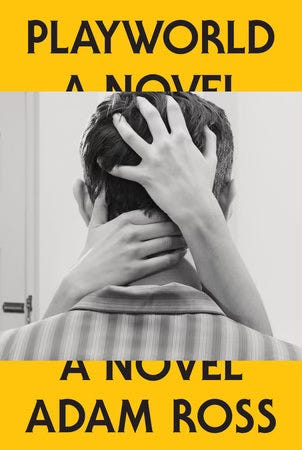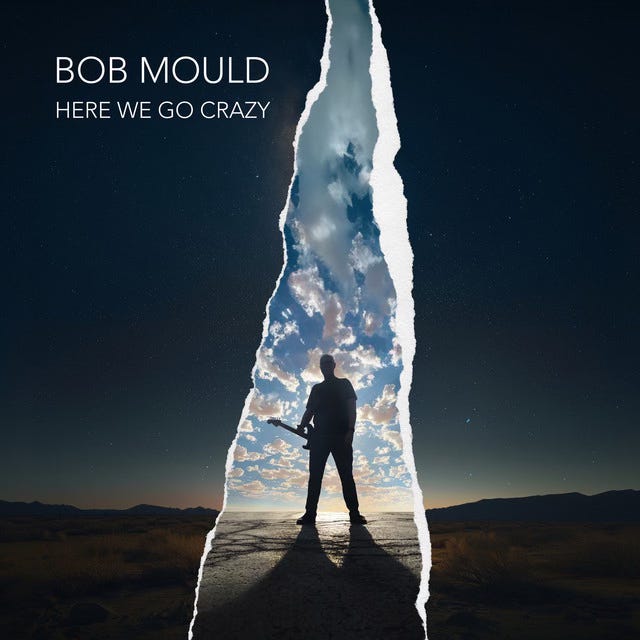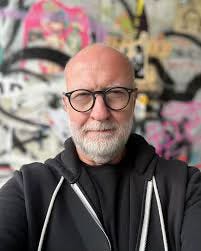Playworld and Here We Go Crazy
Considering Adam Ross' last novel and Bob Mould's most recent album.
We’ll get back to the various ongoing series and normal features around here shortly, but I thought I’d share my thoughts on a novel I just finished reading and an album I’ve been spinning.
Playworld By Adam Ross
On The Watch podcast, co-host (and my sometimes doppelgänger) Chris Ryan recommended the novel Playworld by Adam Ross. Here’s the back-of-book description of the novel:
Griffin Hurt is in over his head. Between his role as Peter Proton on the hit TV show The Nuclear Family and the pressure of high school at New York’s elite Boyd Prep—along with the increasingly compromising demands of his wrestling coach—he’s teetering on the edge of collapse.
Then comes Naomi Shah, twenty-two years Griffin’s senior. Unwilling to lay his burdens on his shrink—whom he shares with his father, mother, and younger brother, Oren—Griffin soon finds himself in the back of Naomi’s Mercedes sedan, again and again, confessing all to the one person who might do him the most harm.
Less a bildungsroman than a story of miseducation, Playworld is a novel of epic proportions, bursting with laughter and heartache. Adam Ross immerses us in the life of Griffin and his loving (yet disintegrating) family while seeming to evoke the entirety of Manhattan and the ethos of an era—with Jimmy Carter on his way out and a B-list celebrity named Ronald Reagan on his way in. Surrounded by adults who embody the age’s excesses—and who seem to care little about what their children are up to—Griffin is left to himself to find the line between youth and maturity, dependence and love, acting and truly grappling with life.
I’ve seen Playworld talked about as being Salinger-esque, and there’s definitely some of that energy here—some Catcher in the Rye but also some of Franny and Zooey. There’s also elements, not surprisingly, of The Graduate in there, as well as the film Adventureland (for some reason, I found myself thinking a lot about that movie as I read this novel). It’s appropriate for a novel about an actor to have different films as these reference points.
Playworld is a novel that is doing a lot and attempt to engage with quite a few worlds, yet I think it does this all successfully. It’s quite impressive for Ross, in his second novel, to take on so much and produce such a sweeping and big novel. It’s even more impressive he pulls it all off.
There are moments in Ross’ novel that are laugh-out-loud funny, there are also moments that are quite harrowing and dare-I-say upsetting. The depiction of Griffin and the confusion of the high-school freshman boy (not even taking into account how Griffin’s experience as a child actor and what that exposed him too would further that confusion) was something that I found to be particularly moving. Perhaps it’s a bit cliché to talk about The Perks of Being a Wallflower, but I remember reading that young adult novel when I was a freshman in high school and finding the way it articulated the alienation and anxiety I was feeling in that exact moment to be profoundly affecting.
Amidst some of the bigger issues and ideas, Ross writes about that time in one’s life in a way that brought back those same anxieties and feelings into my mind. There’s a lot in the novel that’s not “relatable” (though it’s fascinating to read about), but those moments in Griffin’s life and the way it feels to be a young guy at that age… that stuff was all quite relatable and knocked me for a loop. I also think it’s a good evocation and investigation of a particular moment in history, namely the moment as America moves into the Reagan 1980s.
I’m not as up-to-date on contemporary fiction as I’d like, but reading Playworld made very intrigued about what else was out there in the contemporary literary landscape and motivated me to get back into it.
Here We Go Crazy by Bob Mould
While, when it comes to alternative rock groups from the Twin Cities in the 1980s, I lean more towards The Replacements than Hüsker Dü, when it comes to solo careers I’m much more of a Bob Mould guy. Mould, the former frontman of that seminal Minneapolis band, put out a new solo album on March 7th, his first since 2020’s Blue Hearts. That album, entitled Here We Go Crazy, features Jason Narducy on bass and Jon Wurster on drums and is another in a long line of stellar solo releases for this alternative rock legend.
Beyond the fact that he’s a bit of a style icon for me (bald, beard, glasses, similar clothes and build)…
My reverence for Mould stems from the fact that he’s one of those figures who carries the torch of power pop into the 21st century. Yes, there’s ample distortion and propulsion that’s in keeping with Husker Du’s hardcore roots. But there are melodies and hooks, which were there in Husker Du but to an even greater degree. In this interview with The Quietus from 2014, Mould identifies the 13 albums that shaped his life and the first three—the Beatles, the Byrds, and the Ramones—all reflect that power pop sensibility.
While there is plenty of ferocity on Here We Go Crazy as there was on Blue Hearts (an album that I haven’t spent as much time with as I should, given that it hit in the midst of COVID and I, like everyone else, was a bit distracted… perhaps I need to go back and spend some more time with it), there are also plenty of hooks, which is exactly what you’d expect from the man who wrote “See a Little Light” and “Sunshine Rock” and “If I Can’t Change Your Mind” for Sugar. Mould’s description of the album in the press materials seem to emphasize its power pop-ness
“On the surface, this is a group of straightforward guitar pop songs. I’m refining my primary sound and style through simplicity, brevity, and clarity. Under the hood, there’s a number of contrasting themes. Control and chaos, hypervigilance and helplessness, uncertainly and unconditional love.”
Straightforward guitar pop, brevity and clarity when it comes to the sound but a kind of darkness and depth lurking underneath… that sounds about right. “When Your Heart is Broken” is one of the greatest examples of that, and also my favorite track on the album.
The title track is in a similar vein, though it feels a bit closer to 90s alternative in terms of the tempo. There’s a range of tempos and tones throughout Here We Go Crazy. “Neanderthal” and “Sharp Little Pieces” both have an element of that Husker Dü speed, mostly thanks to Wurster’s drumming. By contrast, the last two tracks on the album, “Thread So Thin” and “Your Side,” show that Mould and co. can pack a punch while being restrained in terms of tempo. Here We Go Crazy is another in this great run of albums featuring Mould, Narducy, and Wurster. Mould’s career is truly impressive in that he had the influential stretch with Hüsker Dü, then the initial solo stuff (and Sugar), and then this later career consistently that solidifies him as this statesman of “alternative” rock.






